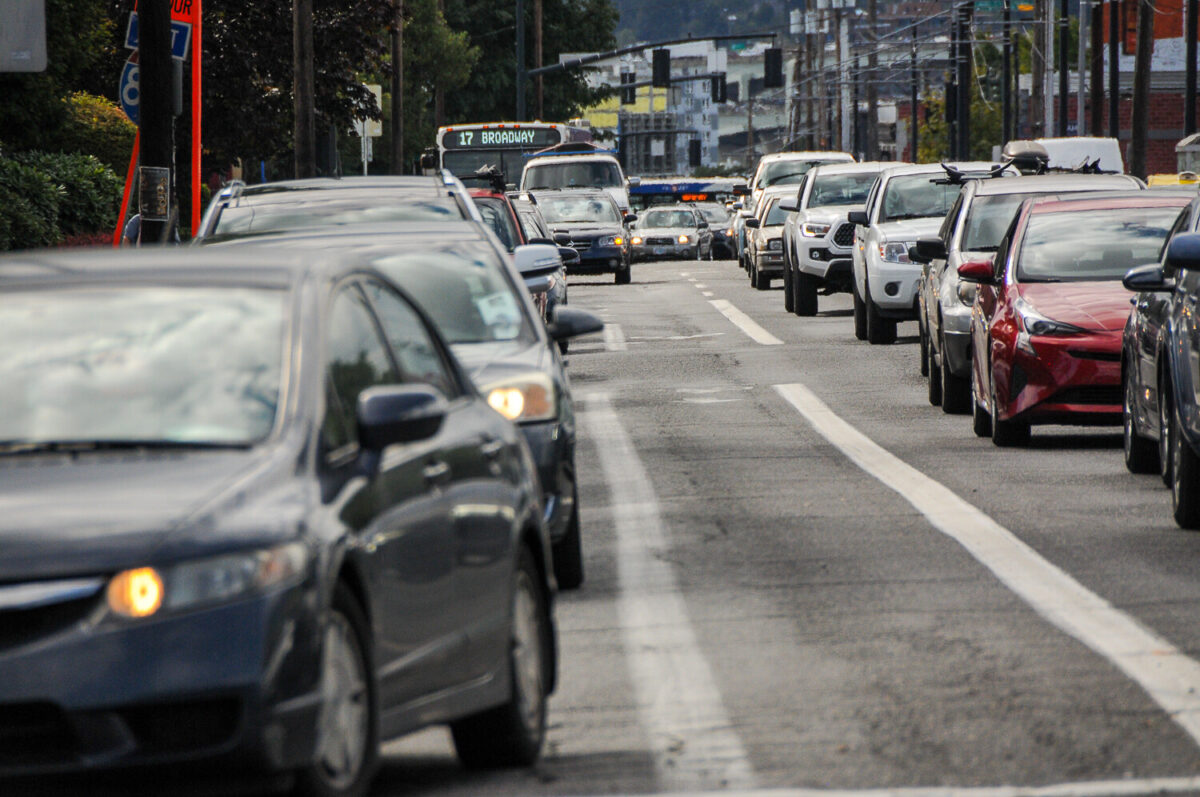
(Photo: J. Maus/BikePortland)
“We have limited road space in the city… We need new ideas to help people and goods get where they need to go more reliably, sustainably, and equitably.”
— City of Portland
Not to be outdone by the Oregon Department of Transportation, the City of Portland is assembling a committee to develop new policies that will make it more expensive to use automobiles.
The Pricing for Equitable Mobility Community Task Force will be a joint effort headed by the Bureau of Transportation (PBOT) and Bureau of Planning and Sustainability (BPS), “as they consider how new pricing strategies could potentially be used to improve mobility, address the climate crisis and advance equity for people historically underserved by the transportation system in Portland.”
PBOT Commissioner Chloe Eudaly is a major fan of congestion pricing so it should come as no surprise that she’s looking for policy and public backing to strengthen its case. Back in April we reported that the commissioner believes the best way to reduce traffic on I-5 through the Rose Quarter is to charge a fee for people to drive on them — not to add more freeway lanes.
Portland will use this new task force to help shape its position on the topic on related ODOT and Metro committees.
Advertisement
ODOT was mandated by the Oregon Legislature in 2017 to move forward on a congestion pricing policy. Their plan to toll I-5 and I-205 was sent to the Federal Highway Administration in December 2018.
The City of Portland’s task force will be free to explore a much broader set of potential pricing policies than ODOT. In a statement, Portland said strategies that will be considered by the task force may include, but are not limited to: “parking pricing, area and time-based fees, fleet charges, road user charges, cordons [priced zones], freeway pricing and more”.
Like many policies coming out of PBOT these days, equity and inclusion are at the forefront. The task force’s work on pricing will include members who represent those who’ve been most harmed by our existing transportation system. “Historically underrepresented communities, including low-income people of color and people with disabilities,” states a statement on the task force, “face barriers that impact their mobility and access and a transportation funding system based on regressive gas taxes… The Pricing for Equitable Mobility Community Task Force will lead with equity and center transportation justice values throughout its work.”
The task force will include up to 20 members who will meet monthly over an 18-month period between 2019-2021. More info here.
— Jonathan Maus: (503) 706-8804, @jonathan_maus on Twitter and jonathan@bikeportland.org
— Get our headlines delivered to your inbox.
— Please support this independent community media outlet with a one-time contribution or monthly subscription.

